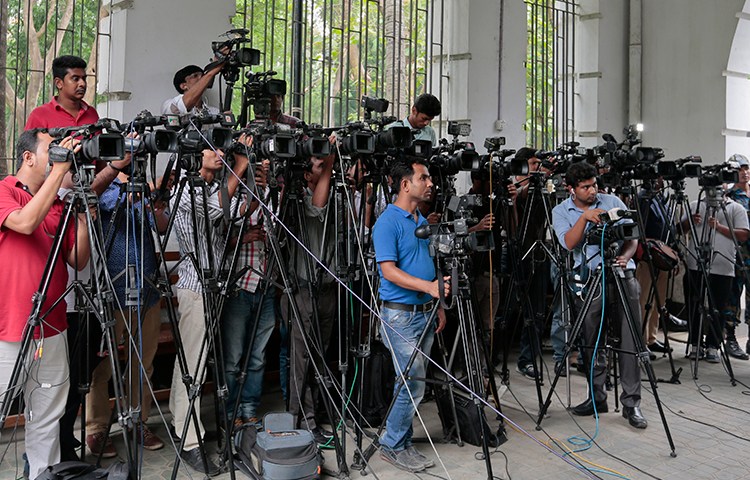
Bangladesh’s press say they are losing the courage to report amid threats from all sides
Nazmul Huda pointed his TV camera at garment workers demonstrating for higher wages in Savar, on the outskirts of Dhaka, and at the police firing tear gas and rubber bullets at them. It took a while for police to notice the ETV reporter, and they were furious. After all, they had ordered him to leave…
Bangladesh should take urgent steps to protect freedom of expression
The U.N. Human Rights Council will convene in Geneva for its next session today. Ahead of this meeting, international groups working on press freedom and freedom of expression, including the Committee to Protect Journalists, made a joint submission to the council calling for urgent and concrete steps to reverse the deteriorating climate for free expression…
Slideshow: Remembering Avijit Roy, one year after blogger’s murder in Dhaka
On the day Avijit Roy was murdered in Bangladesh’s capital, Dhaka, I had only just left the country. When I arrived in India later that day a Bangladeshi journalist broke the news to me that Roy had been hacked to death and his wife Rafida Ahmed Bonya, also a blogger, had been critically injured.
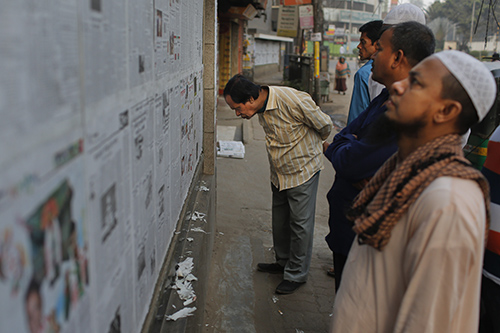
79 cases and counting: Legal challenges pile up for Daily Star editor who admitted error in judgment
When Mahfuz Anam, editor of one of Bangladesh’s most respected newspapers, admitted recently to a lapse in editorial judgment several years ago, he could not have predicted the legal backlash that would ensue. Anam’s admission that he published unsubstantiated information accusing Prime Minister Sheikh Hasina of corruption has led to a barrage of defamation and…
From Charlie Hebdo in Paris to bloggers in Bangladesh, extremists target press
Thursday marks one year since two gunmen burst into the Paris offices of satirical magazine Charlie Hebdo and opened fire. Over the following year, CPJ documented the deaths of 28 journalists who were killed for their work by Islamic militant groups such as Islamic State and Al-Qaeda. This StoryMap charts the deadly attacks that took…
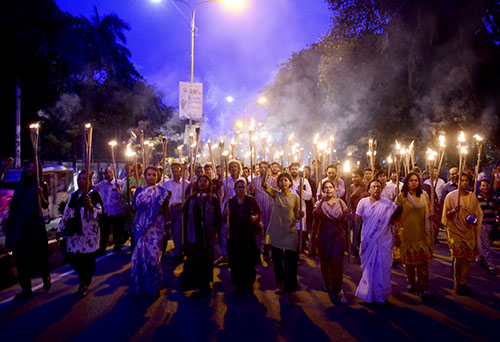
Case will test Bangladesh and its commitment to justice for bloggers
Murder charges filed this week against five suspected Islamist militants in the killing of a Bangladesh blogger give the government a chance to prove it’s serious about protecting the nation’s bloggers. The formal charges, filed in connection with the March killing of Washiqur Rahman Babu, mark the first time charges have been brought in any…
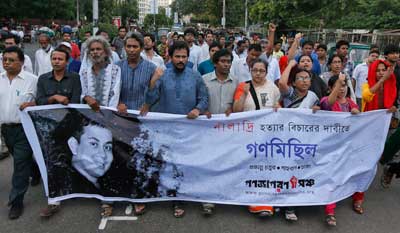
Hasina government must do more to protect Bangladesh’s bloggers
Asif Mohiuddin’s stab wounds are still visible two years on. In January 2013, the outspoken Bangladeshi blogger narrowly escaped death after he was attacked near his office by knife-wielding assailants. His attackers stabbed him nine times on his neck, head, and back, narrowly missing his spine.
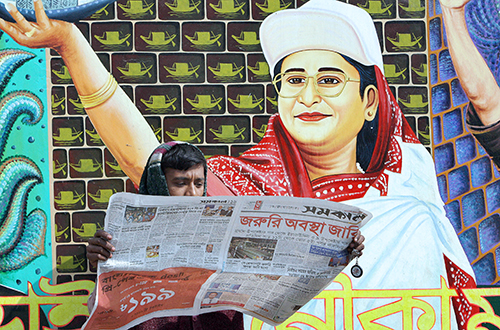
Mission Journal: Bangladeshi press reined in as Hasina exerts authority
Matiur Rahman Chowdhury has been the host of “Frontline,” a popular Bangla-language news show, for five years. Aired live three times a week, the show gained notoriety for bringing politicians, members of civil society, and journalists together to discuss current affairs. Chowdhury distinguished himself from many of his counterparts with his soft-spoken but firm demeanor…
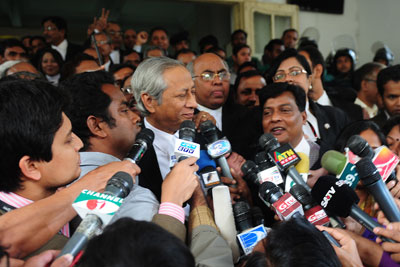
Restrictive broadcast policy in Bangladesh raises concerns
This week, Prime Minister Sheikh Hasina’s cabinet approved a restrictive policy governing Bangladesh’s broadcast media. While the policy calls for the creation of an independent commission to oversee electronic media–a positive step, in principle–it’s unclear how and how quickly the commission will be formed. Meanwhile, the policy restricts what can be broadcast, raising red flags.
